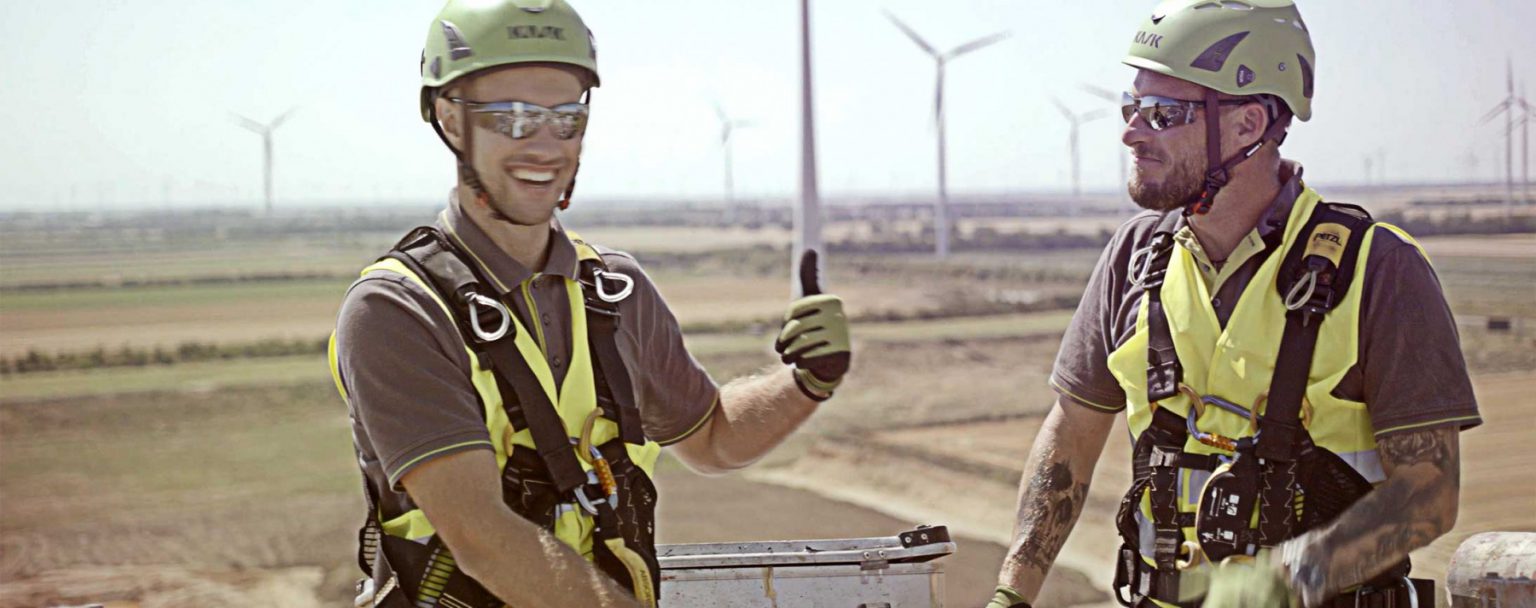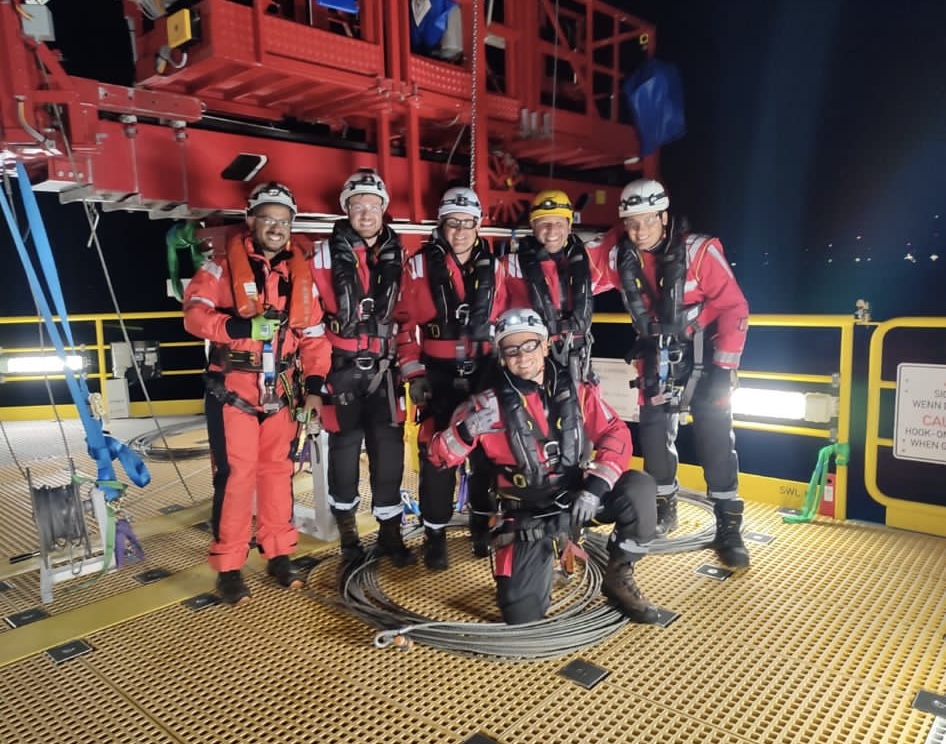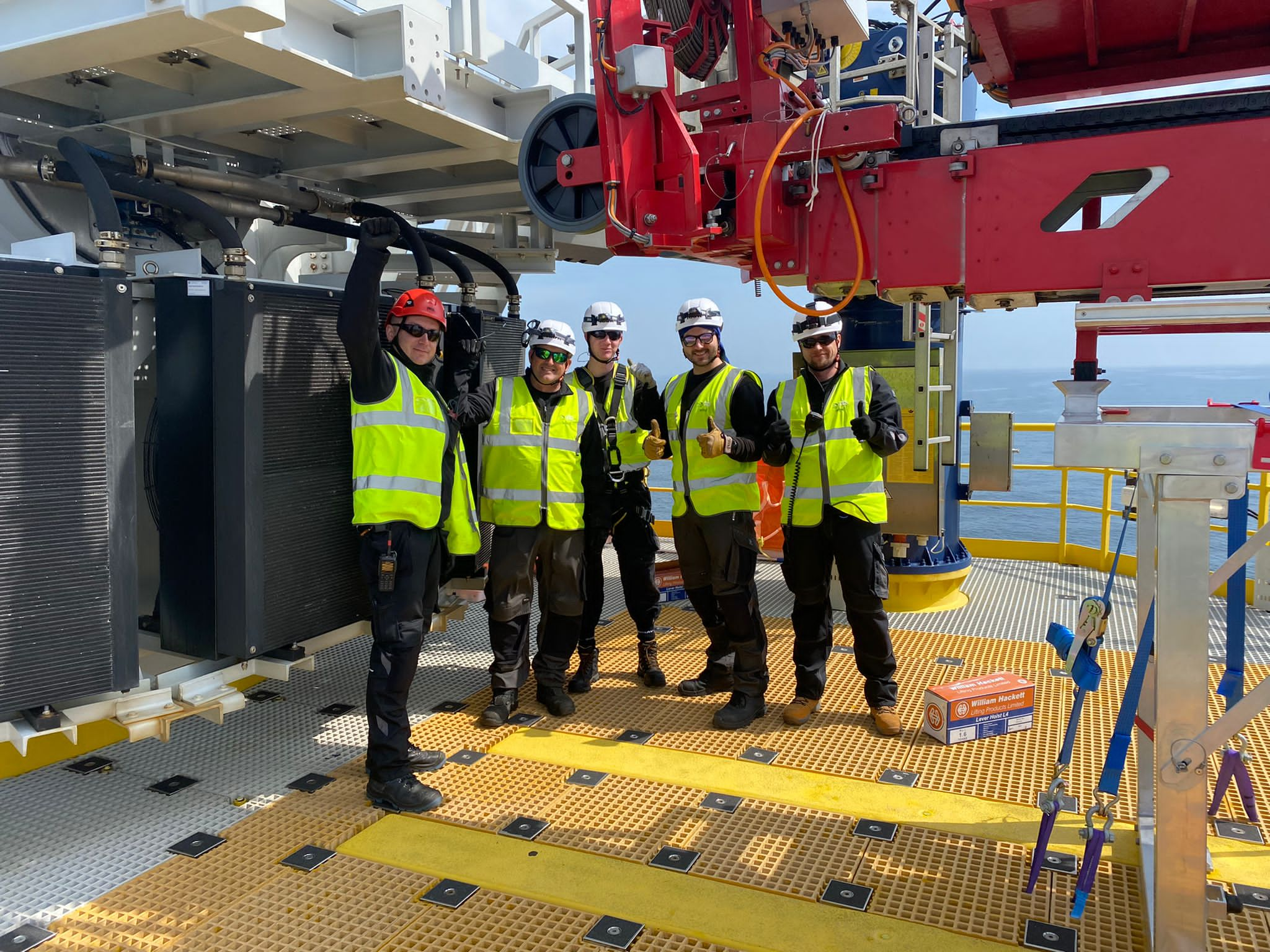In the wind energy sector, training providers often put the finishing touches to the training of newcomers to the profession as service technicians for wind turbines or fitters for the construction of wind farms.
Trained specialists are usually considered for this, e.g. electronics technicians, mechanics, industrial climbers and comparable professions. However, career changers who are looking for a new career can also gain a foothold in the wind energy industry. We explain what is possible… an article by Vanessa Memmert:
“Becoming” is not an arrival, a “finished state” or a finish line that one crosses at some point. Rather, “becoming” is a process of continuous self-development. It is precisely this forward movement that is often ensured in the wind energy sector by training providers who add a further qualification “on top” of the completed craft training and thus make it possible to enter the wind energy sector.”Becoming” is not an arrival, a “finished state” or a finish line that one crosses at some point. Rather, “becoming” is a process of continuous self-development. It is precisely this forward movement that is often ensured in the wind energy sector by training providers who add a further qualification “on top” of the completed craft training and thus make it possible to enter the wind energy sector.
RTS works with a number of training providers and training centres that are spread all over Europe. Shortly before Christmas, I was able to get to know the Berufsfortbildungswerk Bremerhaven (bfw), which I visited together with a colleague. It offers a wide range of courses, including in the field of electrics and mechanics: This holds interesting possibilities for people in vocational reorientation.
What courses are offered for wind energy?
The courses offered are AZAV-certified and can therefore be financed by external cost units such as the Federal Employment Agency or the Vocational Training Service of the German Armed Forces.
The institution offers two important training opportunities for the wind industry, especially with the two qualifications “Specialist for the construction of onshore/offshore wind turbines” and “Service technician (HKW) for wind turbines, onshore/offshore“.
While the assembly specialists are trained in the correct use of hydraulic tools, the basics of electrical engineering and ladder systems and prepared to work on the assembly of wind turbines, the prospective service technicians receive fundamental knowledge to be able to carry out repair, maintenance and overhaul work. This includes, among other things, the modules Mechanical Engineering I-III, business basics, but of course also technical communication and legal basics in wind energy.
Also worth mentioning is the training with regard to occupational safety: the safety training courses according to GWO standards, which are essential for working on wind turbines, are also covered. When you hold such a certificate in your hands, you have already climbed the first step of the “wind energy career ladder”.
The service technicians also receive a chamber certificate upon graduation, making them a valuable member of the applicant pool in the wind industry. Because it is not only the participants themselves who benefit from training programmes offered by educational institutions; companies operating in the wind energy sector are also pleased to have qualified, well-trained personnel at a time when there is a shortage of skilled workers. It was an important day for me in Bremerhaven. I now know what opportunities educational institutions offer and can incorporate this into my work and advise interested parties accordingly. Many thanks also to the bfw team for the friendly reception and the informative day.



